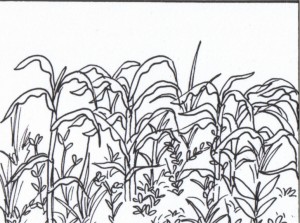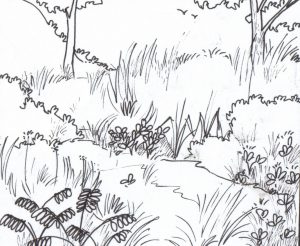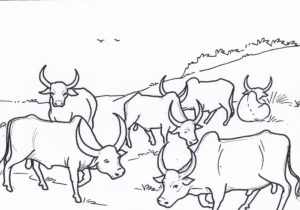Uganda is an agricultural country. Majority of the young people in your generation will get jobs or be in businesses that are linked to agriculture. Below is the guidance in coming up with science-based solutions towards improving agriculture in Uganda.
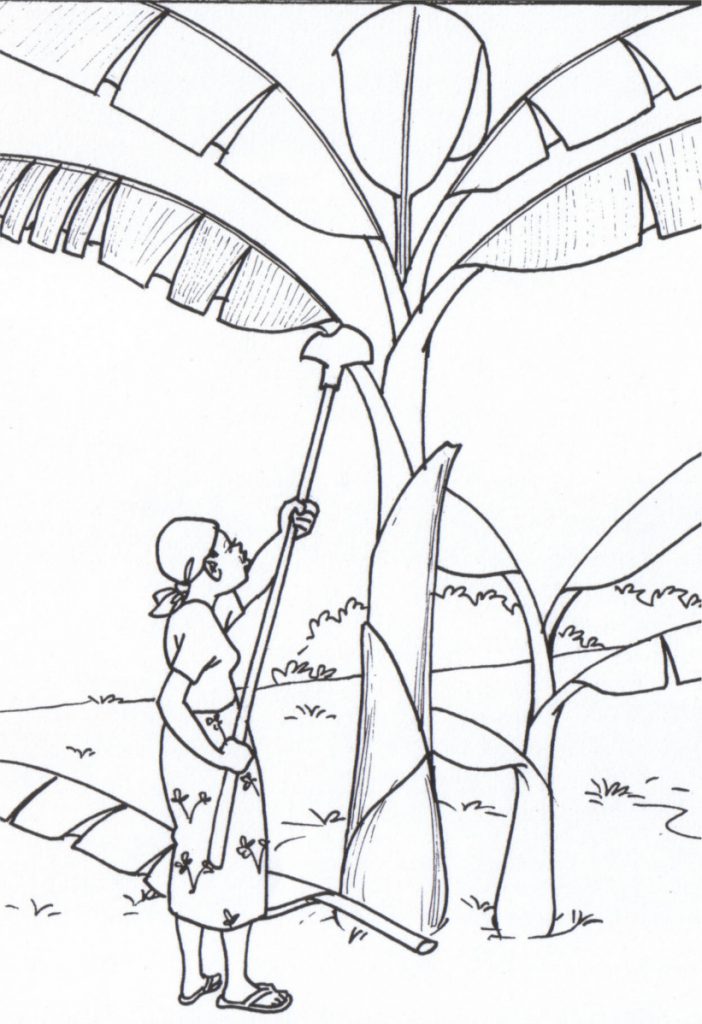
(b) The science behind
Mulching conserves water in the soil, reduces growth of weeds in gardens and improves soil fertility.
(c) Challenge for present Uganda
Rainfall is becoming difficult to rely on for Agriculture. This means a need for irrigation (watering crops). However, the hot climate easily dries most of Uganda’s soil. Thus, practices that conserve soil water such as mulching will have to be embraced, if irrigation agriculture is to succeed in Uganda.
(d) What you need to consider
i. Where in present Uganda is mulching practiced?
ii. What advantages do communities that practice mulching have?
iii. Which ways can improve mulching in Uganda?
iv. What other local practices conserve soil water in Uganda?
v. Which measures can be employed to reduce on water used in irrigation agriculture?
vi. Which careers should be promoted to get the workforce for irrigation agriculture in Uganda?
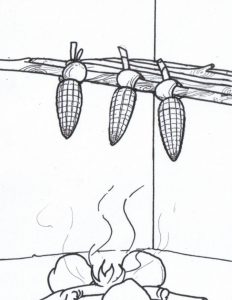
(b) The science behind
-Plants pass on their looks from grandparents/parents and on to offspring. By keeping good-looking seed for next season, one ends up, after several cycles of planting and harvesting, with a better crop that is well adapted to the local environment.
-Hanging dried crop above the fire place protected it from pests and other bio-destroying agents such as fungi, while at the same time ensuring that water/moisture content in the crop remained low.
(c) Challenge for present Uganda
-Our great grand parents produced numerous crop varieties that are better adapted to local environment. Many of these crop varieties are still present. The challenge now is (i) Ensuring that Uganda does not lose these varieties (ii) Improving them with a view of addressing some of the agricultural problems facing Uganda.
-There is need to improve the quality of planting materials, for agriculture depends largely on the quality of planting materials.
(d) What you need to consider
i. Do you know of any local crop variety in Uganda?
ii. How does it differ from an exotic crop variety?
iii. Why should Uganda preserve that local crop variety?
iv. Can that local crop variety be improved? If so, how?
v. Who produces planting materials that farmers use in Uganda?
vi. Which careers should be promoted in order to get workers for improving crop varieties in Uganda?
(b) The science behind
-Mixed cropping adds to soil fertility, especially when leguminous plants like beans are included.
-It also promotes food security, i.e. planting different crops on the same garden means that in case one crop fails, others would still provide food.
-Shifting cultivation enables the abandoned land to regain soil fertility.
(c) Challenge for present Uganda
Most soils in Uganda have been used to carry out agriculture for a long time, but without adding fertilizers. As a result, the soils have lost fertility leading to poor crop yields. Restoration of soil fertility is key to improving agriculture production in Uganda.
(d) What you need to consider
i. Why is soil referred to as a “living thing”?
ii. At Kakira sugar plantations (Busoga, Eastern Uganda), the area has been used to grow sugarcane for more than 40 years. Why are these soils still good for sugarcane growing?
iii. If you want to grow Maize, Bananas, Beans, etc. in Uganda, which fertilizer(s) is recommended?
iv. How does Uganda get the fertilizer(s) you mention in (iii) above?
b) The Science Behind
Animals pass on some of their looks from grandparents or parents and to offspring. By selecting good looking bulls to mate with their cows, communities ended up, after several generations of animals, with better herds that are well adapted to local environment. These animals do not fall sick easily, can withstand dry season to some extent, produce meat/milk that has a good taste, etc.
(c) Challenge for present Uganda
Several local breeds still exist. Outstanding challenges are (i) ensuring that Uganda does not lose the local breeds (ii) improving them with the aim of getting breeds able to feed present and tomorrow’s Uganda.
(d) What you need to think about
i. Do you know of local animal breeds in Uganda?
ii. How do they differ from exotic animal breeds?
iii. Which disadvantages do local breeds have?
iv. How can the problems you mention in (iii) above be overcome?
v. Which careers should be promoted to get the workforce for improving animal breeds in Uganda?
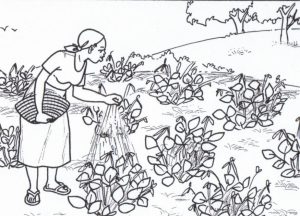
(b) The Science Behind
Ash is a collection of several compounds or oxides.
-Some of these oxides, upon contact with moisture, change the pH (acidity or alkalinity) of surrounding environment rendering it unsuitable for certain pests or disease causing agents.
-Other oxides are toxic or repellent to pests and disease causing agents.
(c) Challenge for present Uganda
Uganda has to reduce on crop losses due to pests and diseases, if the country is to ably feed its expanding population while at the same time retain excess food for sale and earn money.
(d) What you need to consider
i. Why is it that many agricultural pests and disease causing agents “love” to be in Uganda?
ii. What will happen if crops in Uganda are not protected from pests and disease causing agents?
iii. Which businesses are involved in protecting crops and animals from pests and disease causing agents in Uganda?
iv. Do the businesses you mention in (iii) above pose any danger(s) to Uganda?
v. If yes, which are these dangers?
vi. How can the dangers you mention in (v) above be minimized/overcome?
You can ignite the power to improve agriculture in your country by interesting students in your school into knowing and demonstrating meaningful local agricultural practices, such as the ones described above. This is possible, especially if you a member to any of the following school clubs:
- Science Club
- Environment Club
- Patriotism Club
- Wildlife Club
- Agriculture club
- Debating club
Becoming a Wealthy or an Influential Person
Most challenges facing agriculture in Uganda are actually work in waiting for young people like you. Behind these challenges are opportunities for your generation to create jobs or to start a business. Look around carefully for these opportunities. The sub-sections “What you need to consider”, on previous page, may provide a starting point in identifying some of the opportunities. If you notice an opportunity, and it sounds interesting to you, take it up as follows:
i. Write it down on paper.
ii. Revisit it after some time (say a week) and see if it still makes sense.
iii. If the idea still makes sense, get more information about it through reading or asking others.
iv. Use that information to refine your idea, so that it becomes clearer to you.
v. Keep it for an appropriate time (either during or after completing your studies).
In short, you can seize that opportunity while you are still at school, then turn it into jobs or business after you have completed school or during your long school holidays. This is one of the shortest paths before you towards becoming a wealthy or an influential person in Uganda.
By reading this interesting story and changing accordingly, you will become valuable to efforts towards developing the agriculture sector of your country.
Relevant careers in Agriculture
If you want to establish whether or not agriculture is an area you could work in after finishing school, read this interesting story. Some of the careers through which one can participate in improving Uganda’s agriculture include:
| Career | Description |
| Agricultural technician | -Assists agriculturists in their work and helps with the collection of information. |
| Agricultural engineer | -Applies engineering principles of science and technology, as well as their knowledge of agricultural practice, to agricultural problems. |
| Agricultural extension officer | -A person between research and farmers. He informs agricultural researchers the problems farmers face. He guides farmers into using solutions or new technologies that agricultural research has produced. |
| Agricultural-economist | -Concerned with all economical activities that influence agriculture, and aims at making it more viable/profitable. |
| Animal scientist | -Works to develop better ways of making meat, poultry, eggs and milk. They also inspect and grade food products. |
| Crop scientist/Agronomist | -Helps farmers grow more and better food, but while preserving our natural resources. |
| Farmer | -Grows crops and raises animals for food production. |
| Food scientist/technologist | -Tries to create food products that are healthier, safe, tastier, and easy to use. |
| Forester | -Manages forested lands for economic, recreational, and conservation purposes. |
| Grain grader | -Responsible for the grading, storage and distribution of food grain. |
| Horticulturist | -Involved in the growing, selling and maintenance of plants for indoor and outdoor usage. |
| Soil scientist | -Studies what is in soils, and how soils help plants grow. They see how things like fertilizer can improve soils. |
| Veterinarian | -Takes care of sick and injured animals. |
| Veterinary nurse | -Works under the veterinarian, and attends to animals; gives them medicine according to prescription, assists with operations and takes laboratory samples. |
